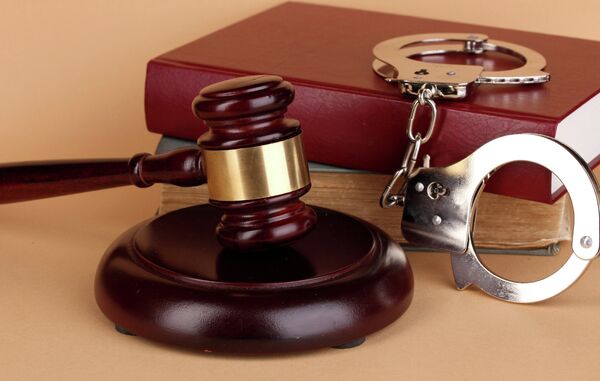INNSBRUCK (Austria), July 29 (RIA Novosti), Mark Hirst – Judicial standards in the UK were “subordinated by power politics” during the Pan Am 103/Lockerbie judicial proceedings, the UN’s official observer to the trial, Hans Koechler, has told RIA Novosti.
Koechler added that he did not believe that a decision by the previous UK Government to withhold “potentially vital” evidence from the defense team of Abdelbaset al-Megrahi, the Libyan convicted of 1988 bombing, would be overturned by the current British coalition Government in London.
Megrahi, terminally ill with prostate cancer, was released on compassionate grounds by the Scottish Government and returned to Libya before passing away in 2012.
“It goes without saying that justice requires transparency and that proper judicial proceedings cannot be conducted in the absence of – potentially vital – evidence,” Koechler told RIA Novosti.
Koechler, a Professor at the University of Innsbrook, said it was important a new appeal, recently launched by Megrahi’s family against his conviction, proceeded.
“It is certainly important that a new appeal goes ahead. The second appeal, that followed the referral by the Scottish Criminal Cases Review Commission, should never have been dropped,” Koechler told RIA Novosti.
“It was obvious to me at the time that Megrahi acted under pressure.”
Six years ago Koechler wrote to the British Foreign Secretary urging him to drop the Public Immunity Interest (PII) certificate that allowed the
UK Government to withhold key evidence from the defense team.
“It will be up to the applicants' legal representatives to raise the issue of the PII certificate in the course of a new appeal,” Koechler said.
“However, what I have learned from observing the Lockerbie controversy, when the "supreme interests" of the state and/or a state's allies are concerned, judicial requirements are always subordinated to considerations of power politics,” Koechler told RIA Novosti.
“This was exactly the dilemma of the Lockerbie case from very beginning: that one cannot conduct judicial proceedings as an intelligence operation. Under such circumstances, the rule of law will always be the victim,” Koechler said. “According to my assessment, it is highly unlikely that the previous British Government’s PII decision will be overruled by the present administration in London.”
Koechler was first to call for an independent international public inquiry into the events that led to the atrocity, which remains the worst terrorist attack in British history.
But whilst the Scottish Parliament is formally considering a petition calling for such an inquiry to be established, Koechler believes chances of one proceeding are unrealistic in the current political climate.
“The Security Council is not anymore seized of the matter – the Lockerbie dispute – and a new consensus among the Council's permanent members on the setting up of an investigative committee is not realistic,” Koechler told RIA Novosti.
“Only a coercive resolution would provide the necessary powers – and independence – to international investigators,” Koechler added. “Under these circumstances, everything will depend on the domestic situation in the UK.”
Koechler dismissed efforts to secure a public inquiry set up by the Scottish authorities.
“An investigation mandated by the Scottish Parliament will not be sufficient because the issue is an international one,” Koechler told RIA Novosti.
Pan Am 103 was en route from Frankfurt to Detroit, via London and New York, when it was destroyed by a bomb as it flew over the Scottish border town of Lockerbie in December 1988.
270 people died in the attack, including eleven people on the ground.
One man, Libyan Abdelbaset al-Megrahi, was convicted of the attack, but since his trial serious doubts have been raised by campaigners and some relatives of victims of PA103 about the safety of his conviction.
In 2007, the Scottish Criminal Cases Review Commission (SCCRC) referred the case back to the Scottish High Court for a second appeal against the conviction. The SCCRC report determined “a miscarriage of justice may have occurred”.
The second appeal was ultimately dropped by Megrahi’s own defense team in 2009 who told the High Court they believed it would “assist” in the determination of the Libyan’s application to be released on compassionate grounds.
Eight days after formally dropping his appeal Megrahi was released and returned to Libya.


